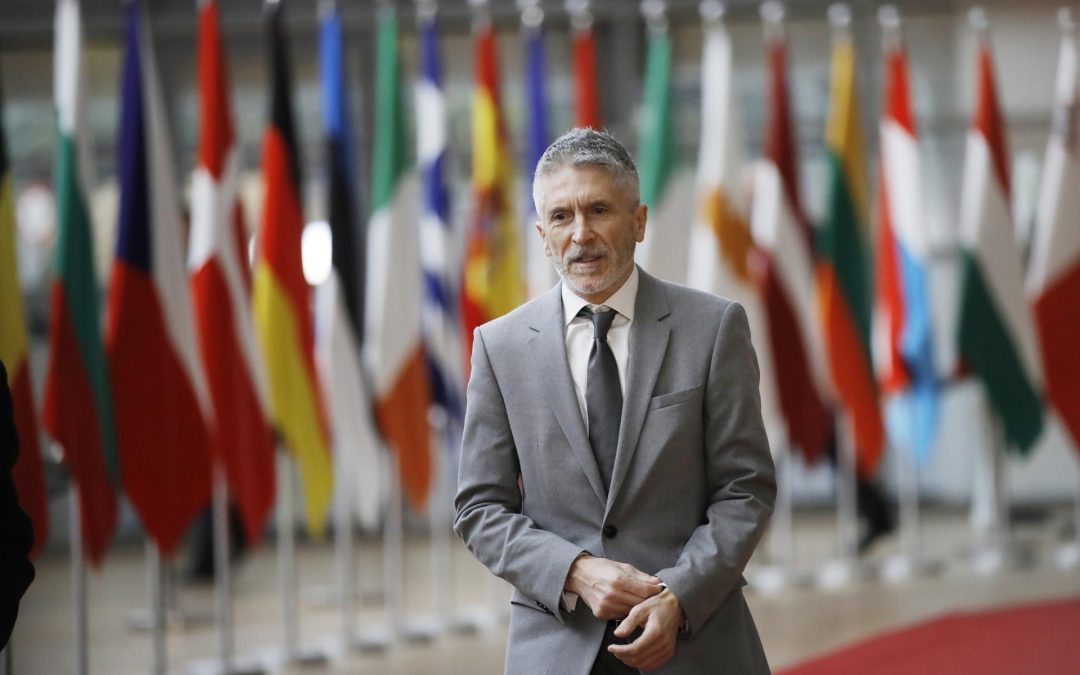Luxembourg.- The Spanish Minister of the Interior, Fernando Grande-Marlaska, defended this Tuesday the “mandatory” mutual recognition of return decisions for migrants in the European Union, against other member states like the Netherlands or France, who support it being voluntary.
The EU interior ministers will discuss the matter as part of a debate on a proposed Return Regulation that establishes a common system for the return of nationals of third countries in an irregular situation in the EU.
The minister explained in statements to EFE upon his arrival at the meeting that this Return Regulation “is a complement to the Migration Pact” that the countries are preparing and that “must be implemented throughout the European Union before next June 2026.”
He added that the aim is to achieve “what (…) we could call a common European return system, that is, a judicial resolution on return in one EU country that has full effectiveness in another EU country.”
In this way, he added, “another country would carry out the return in cases where it has been resolved by the authority, even judicially, the non-right to remain in Europe.”
One of the elements being discussed in the EU is whether this recognition should be mandatory or voluntary, with countries like France and the Netherlands favoring the latter and Spain advocating for its mandatory nature.
“We would like it to be mandatory (…) because that is really the basis of what the area of Justice and Freedom is,” that is, “that a resolution issued by an authority of one country has the same value in another country.”
The minister emphasized that “we share values, we form a common legal framework that we then implement. This should necessarily lead to mandatory recognition.”
According to Grande-Marlaska, voluntariness “has been established for twenty years in the Return Directive.”
Spain seeks for it to “be mandatory within a set timeframe in the Regulation itself. That is, there should be no exceptions that (…) undermine the need to achieve mandatory recognition of return resolutions in a (…) short term.”
He opined in this context that there could be “a period of adaptation,” but that in a short period of time from the entry into force of the new regulations, the decisions of one country should be “mandatory in any other country in the EU.”
The proposed Regulation includes, among other elements, common procedures for issuing return decisions, clear rules regarding forced returns, and stricter obligations for returnees concerning cooperation with national authorities. (October 14)
 go to the original language article
go to the original language article
